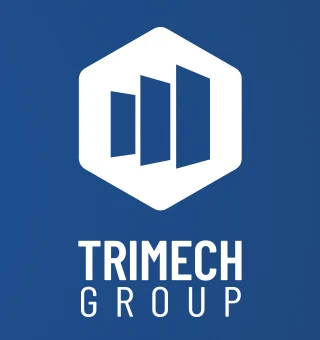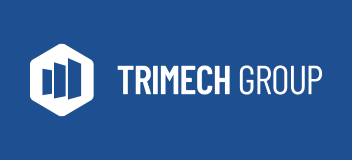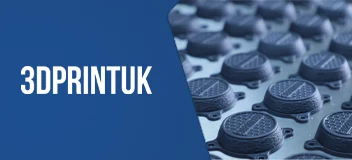Understanding Engineering Quoting: Time Blocks vs Fixed Quoting
Many of our clients have inquired about how our Project Engineering Group determines the quoting and scope of our projects. While our engineering quotes will differ between each client, we typically provide two types of packages: Time Blocks and Fixed Quotes. Both methods of engineering quoting allot a certain scope of hours for the client, but they still have differences.
Engineering Quoting: Time Blocks
The method of time blocks sets predefined periods during which projects are scheduled or estimated to be completed. These blocks help project managers allocate resources, track progress, and manage timelines effectively.
At TriMech, we have two common time blocks:
- Mechanical engineering and design: a 40-hour minimum
- Simulation engineering and design: a 20-hour minimum
Based on the type of project at hand, our team sets loose minimums for blocks of hours as we have a good understanding on what amount of time is typically needed to find value for our clients. For example, Mechanical Engineering projects are typically set at a 40 hour minimum. These prepaid hours grant access to our full range of engineers, usable on any project.
Pros and Cons of Time Blocks
| Advantages of Time Blocks | Disadvantages of Time Blocks |
|---|---|
| Flexibility: Allows for adjustments based on project developments, changes in scope or unforeseen challenges | Complexity: Requires detailed planning and management |
| Detailed Tracking: Breaks tasks into manageable parts, easier to monitor progress and resource allocation | Variable Costs: Costs can fluctuate based on the time taken to complete tasks |
| Improved Estimation: More accurate time estimates by focusing on specific tasks rather than the overall project | Potential for Scope Creep: Additional changes or features might complicate timelines and costs |
| Client Communication: Clear timelines for clients, manage expectations and foster transparency |
Unlike a fixed cost setup where the contractor is hired for a specific project, the time blocks allow any extra hours left over to be used for different projects.
It is rare that these hours are left unused, but there are multiple ways in which our engineers can help to find value in these potential extra hours.
Let’s say a client only needed 35 out of 40 hours – the remaining five hours could be used for another project, practical training for your internal engineers, or saved for future needs. And while it is the client’s responsibility to use their paid hours, our engineers support clients finding value and success in their projects by following up if there is time left unused.
For example, Project Engineer Alain Bucio was recently working on a windloading CFD project, where the client wanted to know the forces on a particular shelter, but then had a separate, more urgent project spring up and they needed the engineers to switch to the new project quickly.
This is the ultimate advantage of time blocks — we are able to allocate to our client’s needs and switch projects when needed, while also being able to switch engineers based on the new focus. By hiring a contractor for a specific issue on a fixed cost set-up, there’s a real possibility of the contractor being unable to adapt beyond the initial project without negotiating new project scopes and driving up total cost.
Time blocks are ideal for clients who would benefit from design-specific collaboration with our engineers.
Time blocks are the best option for clients whose projects require lots of back and forth collaboration or may need support with multiple projects over a shorter time period.
Engineering Quoting: Fixed Quotes
Fixed quoting refers to the pricing strategy where a project is given a single, predetermined price for the entirety of the work. This price remains constant, regardless of the actual time and resources required to complete the project, as long as the scope remains unchanged.
Pros and Cons of Fixed Quotes
| Advantages of Fixed Quoting | Disadvantages of Fixed Quotes |
|---|---|
| Budget Certainty: The clear total cost upfront makes it easier to manage finances | Limited Flexibility: Renegotiation might occur if project requirements change |
| Simplicity: Easier to communicate and understand | Dependence on Initial Estimates: Complications may arise if the initial estimates are inaccurate |
| Reduced Administrative Overhead: Less time spent on tracking hours and resources, allowing for more focus on project execution | Less Detailed Tracking: Since the focus is on the overall cost, it can be harder to monitor progress and resource usage at a granular level |
For some projects, time blocks are more optimal as there’s an expectation of collaboration. However, there are some instances when a fixed cost setup makes more sense.
When it comes to a project that is well defined with set parameters that require little back and forth, a fixed cost can be set to the scope of the project design. Some companies are required to determine the full cost for a project, and are not allowed to purchase work that is hours-based. If clients engage with us on a fixed cost project that ends up needing additional work, we are able to add scope over time if the initial scope isn’t enough.
A fixed scope is ideal for clients whose companies require a set price for the completion of a project, or who have a well-defined project with all parameters defined.
Contact TriMech if you would like to discuss quoting for a particular project in mind, or if you have any additional questions!
Have a Product Idea?
Discover our product development services tailored to startups, small manufacturers, and inventors.
Design Newsletter
Get the latest news curated for designers, makers and inventors.
Product Design Experts related to this content:
Discover our team of designers, engineers, project managers, and problem-solvers.
Chris Panosh, Manager, Engineering Services
Chris Panosh is based out of Charlottesville Virginia. Chris has a B.S. in Mechanical Engineering from North Carolina State University.
More from our Blog
How Inventors Build Successful Businesses: Revenue Streams
I admit we’ve been talking about money quite a bit in our last few blogs. And for a good reason! Funding is one of the…
Ovie Creates First Smart Food Storage System
Ovie worked with a product design studio to bring their food storage system idea to help eliminate food waste to life through their Smarterware system.
Mitigating Burnout: An Engineer’s Guide to Thriving in a Fast-Paced World
Navigate burnout with 'Mitigating Burnout: An Engineer's Guide.' Learn strategies for a thriving career in engineering.
Need help with your Product Idea?
Tell us about your invention or product design idea and get the help you need design, build and bring it to market

















